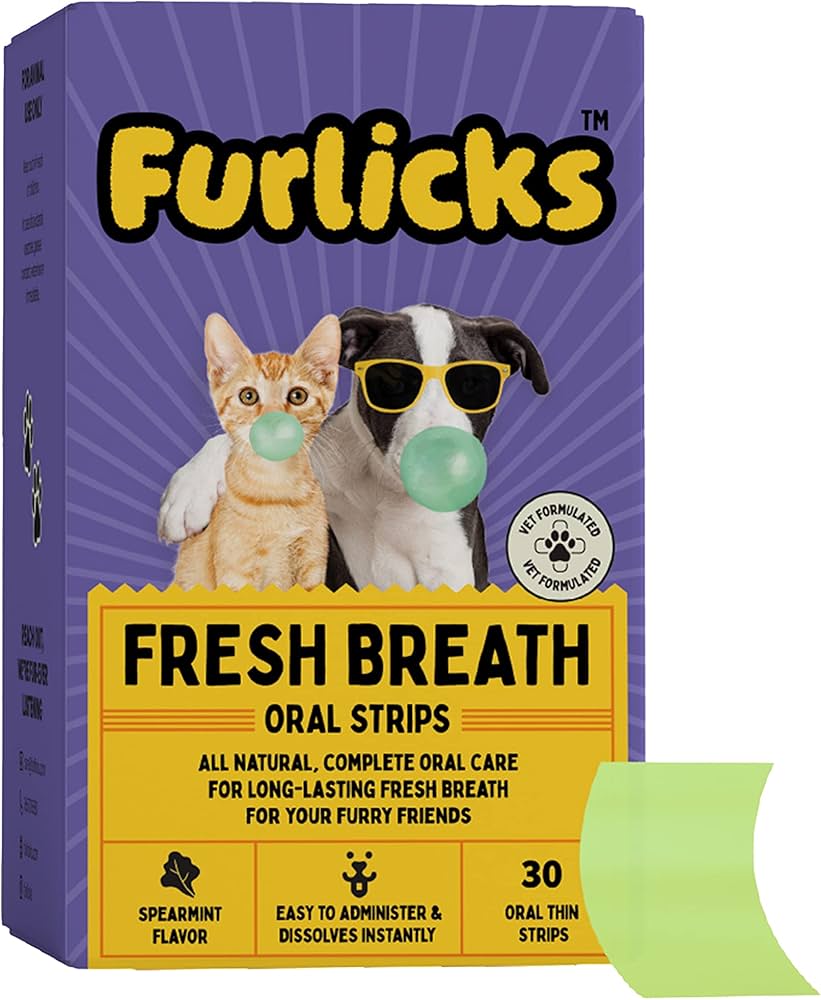Bad breath in dogs, often dismissed as a normal canine characteristic, can be a cause for concern for many pet owners. While a faint odor might be typical, persistent foul breath, medically known as halitosis, is not and could indicate underlying health issues. Fortunately, there are several natural approaches to help freshen your dog’s breath, ranging from dietary adjustments to consistent dental care routines.
The primary causes of bad breath in dogs often stem from poor oral hygiene, leading to plaque and tartar buildup. This can progress to periodontal disease, causing gum inflammation, infection, and even tooth loss. However, other factors can contribute, including consuming certain foods, gastrointestinal problems, diabetes, kidney or liver issues, and even foreign objects lodged in the mouth. If your dog’s breath is consistently unpleasant, a veterinary consultation is crucial to rule out any serious medical or dental conditions. Dr. Liza Cahn emphasizes the importance of veterinary treatment for issues like periodontal disease.
When medical causes have been excluded, certain foods, offered in moderation as part of a balanced diet, can contribute to fresher breath. It’s important to remember that these treats should not exceed 10% of your dog’s daily caloric intake, with the majority of their nutrition coming from a WSAVA-compliant commercial dog food, as advised by Dr. Liza Cahn.
Natural Foods to Freshen Your Dog’s Breath
Incorporating the following foods into your dog’s diet can help combat bad breath:
1. Carrots
Carrots are an excellent choice due to their crunchy texture, which helps to clean teeth and massage gums as your dog chews. This abrasive action can scrape away food particles and plaque. Additionally, carrots are rich in beta-carotene and vitamin A, which support overall health, including eye health and immune function. They can be given raw or lightly steamed and should be cut into appropriate sizes to prevent choking hazards.
2. Blueberries
These antioxidant-rich berries promote oral health and can help freshen breath. The antioxidants in blueberries may also reduce gum inflammation. They provide vitamins C and K, contributing to your dog’s overall well-being. Blueberries can be offered fresh or frozen as a healthy snack or reward.
3. Apples
Similar to carrots, apples possess a fibrous texture that aids in cleaning teeth and removing plaque. They are a good source of vitamins A and C, essential for vision, immune function, and tissue repair. Always remove the core and seeds, as apple seeds contain cyanogenic glycosides, which can be toxic to dogs.
4. Curly Parsley
Curly parsley, when given in small amounts, can act as a natural breath freshener due to its antibacterial properties and high chlorophyll content. Chlorophyll helps neutralize odors and supports digestion. It’s crucial to use only curly parsley, as other varieties can be toxic. Always consult your veterinarian before adding it to your dog’s diet.
5. Yogurt
Plain, unsweetened yogurt is a good source of probiotics, which help balance oral bacteria, promoting a healthier mouth and fresher breath. It also provides calcium and protein, beneficial for strong teeth and overall health. Avoid yogurts with added sugars or artificial sweeteners, especially xylitol, which is toxic to dogs.
6. Pumpkin
High in fiber, pumpkin aids digestion, which can indirectly reduce odor-causing bacteria in the gut and mouth. It’s also rich in vitamins A and C. Pureed pumpkin, without added sugars or spices, can be mixed into your dog’s food. Dosage recommendations should be obtained from your veterinarian.
7. Celery
The crunchy texture of celery helps clean teeth by removing food particles and stimulating gums. It is also a good source of fiber and vitamins A, C, and K. Cut celery into small, manageable pieces to prevent choking.
8. Watermelon
Watermelon’s high water content aids hydration, crucial for maintaining good oral health and cleaning teeth. It provides vitamins A, B6, and C. Ensure you remove the seeds and rind before offering it as a treat, as these can cause digestive blockages. Due to its natural sugar content, watermelon should be given in moderation, especially to diabetic or overweight dogs.
Beyond Diet: Comprehensive Dental Care
While these foods can help, they are not a substitute for a robust dental hygiene routine. Daily toothbrushing at home, regular professional dental cleanings under anesthesia with your veterinarian, dental chews, water additives, and specialized dental diets are the most effective ways to maintain your dog’s oral health and ensure consistently fresh breath.
Incorporating these natural foods, alongside consistent dental care practices, can significantly contribute to fresher breath for your canine companion, allowing for more enjoyable close interactions without the worry of unpleasant odors.

